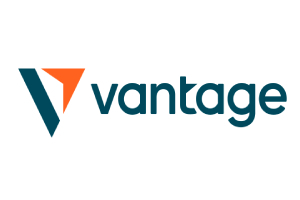Re-staking has attracted over $18 billion worth of cryptocurrency to a new type of platform that offers investors rewards for locking up their tokens. This complex scheme has drawn attention from analysts, who warn of potential risks for users and the broader crypto market, as reported by Elizabeth Howcroft of Reuters.
The Rise of Re-Staking
Re-staking has gained popularity as a sign of increased risk-taking in the crypto markets, coinciding with a rally in prices. Bitcoin, the largest cryptocurrency, is approaching its all-time highs, while ether, the second-largest, has risen by more than 60% this year.
Sreeram Kannan, EigenLayer’s founder, explained that the company developed re-staking to build upon the existing crypto practice of staking.
Understanding the Risks
Blockchains function as databases, with many computers in a network verifying ownership of cryptocurrencies. To participate in this process, crypto token owners, like those holding ether, lock up their assets for validation. In return, they earn yields but lose immediate access to their tokens.
Some staking platforms offer users newly-created cryptocurrencies as representations of their staked assets. Re-staking allows these owners to use these new tokens for staking with different blockchain-based programs and applications, aiming for higher returns.
The crypto community is divided on the risks of re-staking. Some insiders argue that the practice is too new to fully understand, while others, including analysts, express concerns.

If the new tokens used in re-staking become collateral in crypto’s vast lending markets, it could lead to endless borrowing loops based on a small number of underlying assets. This situation could destabilize the broader crypto markets if everyone attempts to exit
Adam Morgan McCarthy, a research analyst at crypto data provider Kaiko, pointed out that collateral on collateral introduces new risks that were previously absent.
Investors are drawn to the yield potential, as staking returns on the Ethereum blockchain typically range from 3% to 5%. Analysts suggest that re-staking could offer even higher returns, as investors have the opportunity to earn multiple yields simultaneously.
This represents the latest development in decentralized finance (DeFi), where cryptocurrency holders invest in experimental schemes in pursuit of significant returns without selling their assets.
Make money without lifting your fingers: Start using a world-class auto trading solution.
LonghornFX, your trusted Partner in CFDs, Cryptocurrencies and Stocks.
- Broker
- Min Deposit
- Score
- Visit Broker
- Award-winning Cryptocurrency trading platform
- $100 minimum deposit,
- FCA & Cysec regulated
- 20% welcome bonus of upto $10,000
- Minimum deposit $100
- Verify your account before the bonus is credited
- Fund Moneta Markets account with a minimum of $250
- Opt in using the form to claim your 50% deposit bonus
Learn to Trade
Never Miss A Trade Again

Signal Notification
Real-time signal notifications whenever a signal is opened, closes or Updated

Get Alerts
Immediate alerts to your email and mobile phone.

Entry Price Levels
Entry price level for every signal Just choose one of our Top Brokers in the list above to get all this free.



